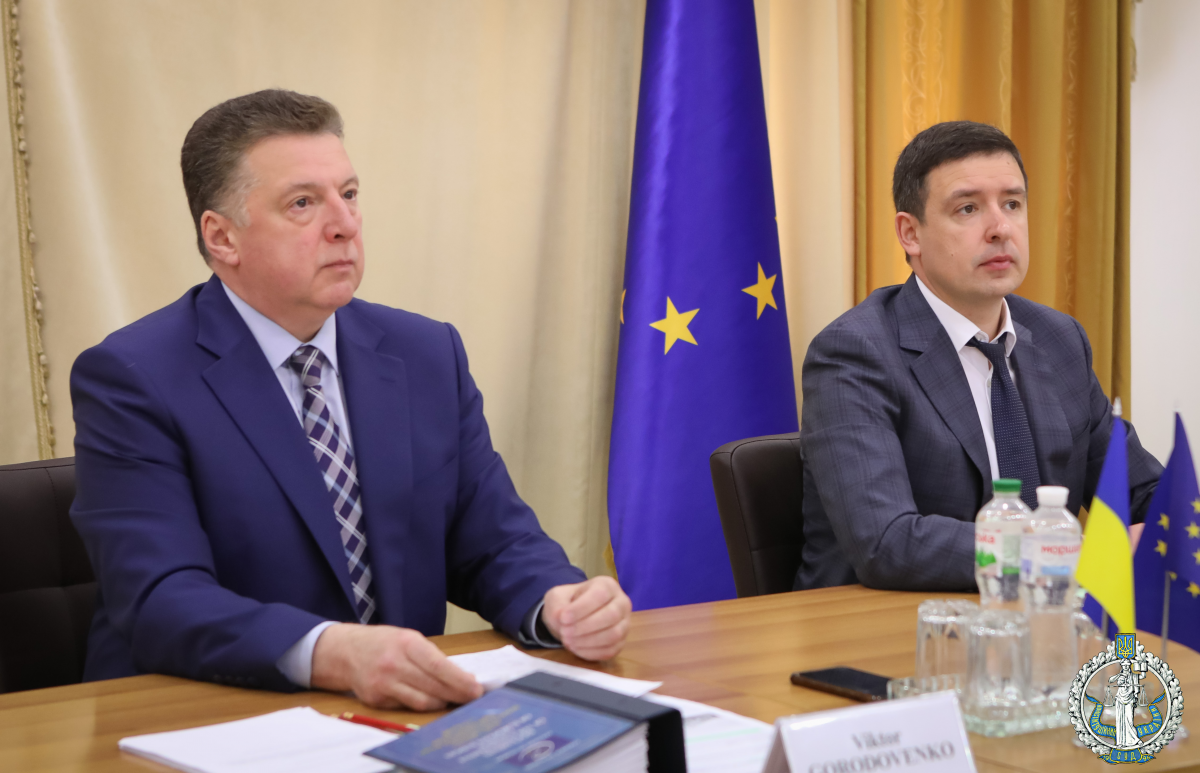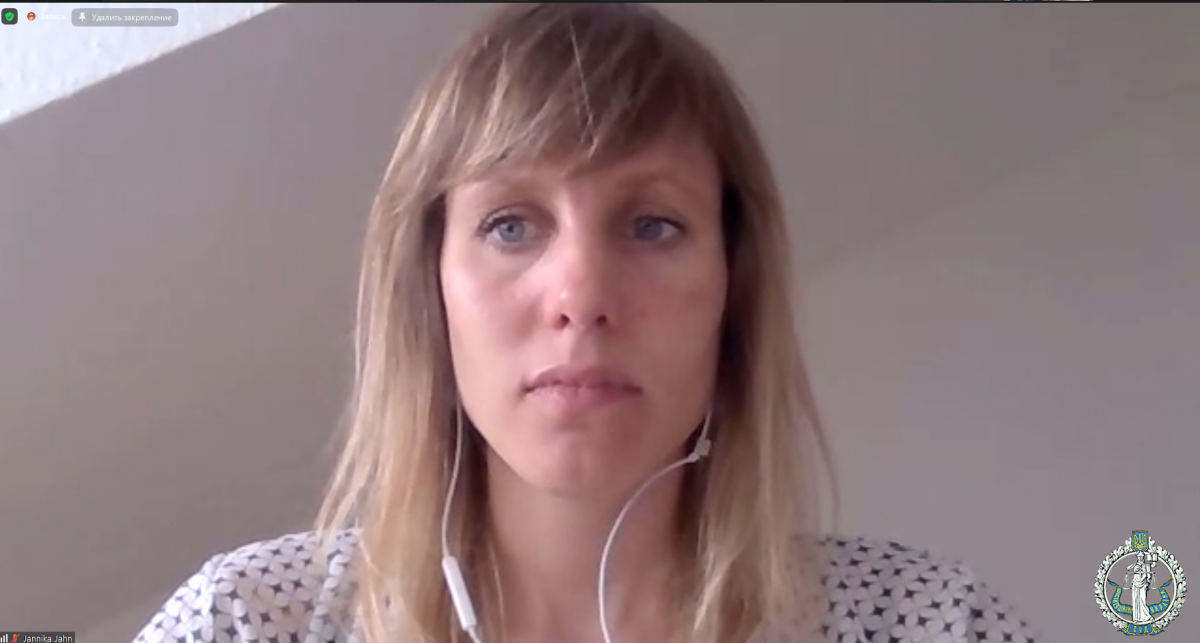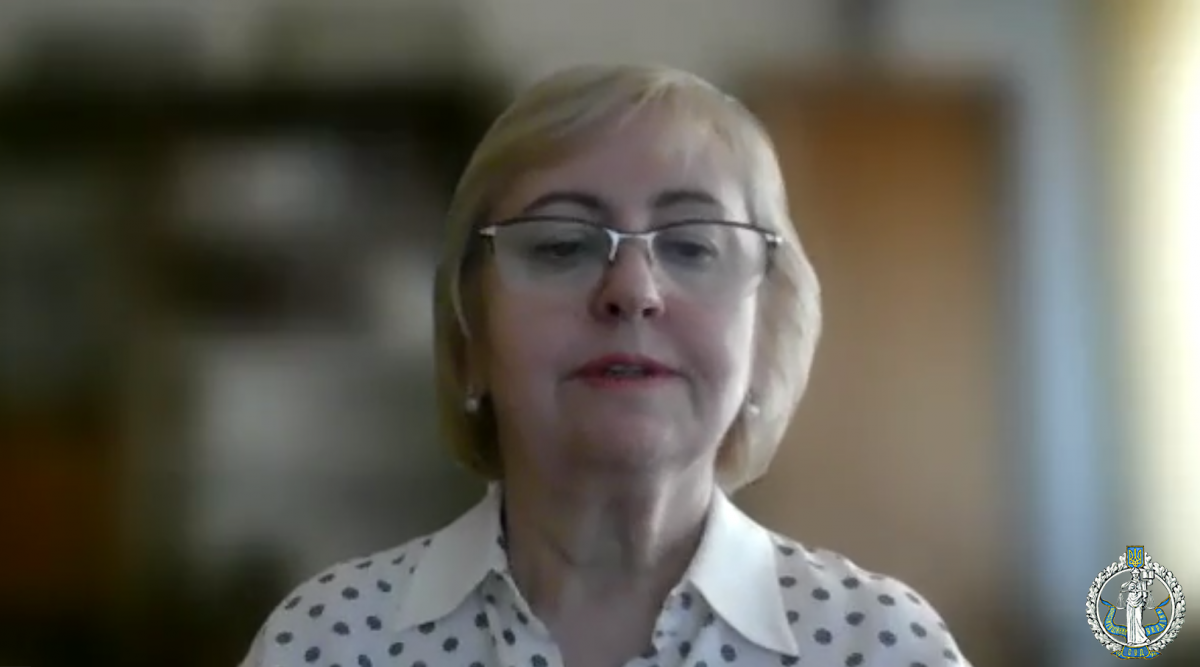On April 24, 2023, Judge of the Constitutional Court of Ukraine, Representative of Ukraine in the Consultative Council of European Judges Viktor Horodovenko took part in the work of a round table during which the Ukrainian translation of Opinion No. 25 (2022) of the Consultative Council of European Judges (CCJE) on the freedom of expression of judges was discussed.
The event brought together a wide range of participants. Welcome words were delivered by the President of the Consultative Council of European Judges, Judge Anke Eilers, the Head of the Secretariat of the Consultative Council of European Judges Artashes Melikyan and the Chairman of the Administrative Court of Cassation within the Supreme Court Mykhailo Smokovych. The judge of the Economic Court of Cassation within the Supreme Court, the Chairman of the Committee of the Council of Judges of Ukraine on Ethical Norms Compliance, Prevention of Corruption and Resolution of Conflict of Interest, the Deputy Representative of Ukraine in the CCJE Yehor Krasnov, the Chairman of the Council of Judges of Ukraine Bohdan Monych, representatives of the High Council of Justice and others also took part in the discussion of the main provisions of the opinion.
Judge of the Constitutional Court of Ukraine Viktor Horodovenko moderated the event.
He emphasised that thanks to fruitful cooperation with the Council of Europe and European partners, it is possible to present the Ukrainian translation of Opinion No. 25 (2022) of the Consultative Council of European Judges for Ukrainian judges, lawyers and representatives of civil society.
The Senior Research Fellow at the Max Planck Institute for Comparative Law and Public International Law, the Advising expert for the Consultative Council of European Judges of the Council of Europe, Dr. Jannika Jahn told about the purpose, general principles and recommendations of the Opinion No. 25 of the CCJE on the freedom of expression of judges. In particular, she noted that Opinion No. 25 was prepared on the basis of previous opinions of the CCJE, the Magna Charter of Judges (2010) and relevant documents of the Council of Europe, and also relies on the case law of the European Court of Human Rights and takes into account the answers of the members of the CCJE to the questionnaire on freedom of expression of judges.
She detailed the content of the opinion, which contains general guidelines for judges and a broad basis for the ongoing discussion when judges exercise their right to freedom of expression both in and out of court, including in the media and social networks. In particular, it refers to the legal and ethical duty of a judge to speak out in order to protect the rule of law and democracy at the domestic, as well as at the European and international levels. It examines the statements of judges on matters of concern to the judicial system, as well as controversial topics of public interest.
Viktor Horodovenko also informed about the key provisions of Opinion No. 25, which are important for Ukrainian judges. He drew attention to the general principles of this opinion, the recommendations of the CCJE on finding a balance between the right of judges to freedom of expression and the goal of preserving public confidence in their impartiality and independence, in particular with regard to statements that may lead to the dismissal of judges and statements that may adversely affect on the authority and reputation of the judiciary. At the same time, the judge pointed out the aspects of freedom of expression of judges in cases where there is a threat to democracy, the separation of powers or the rule of law. He emphasised that the opinion states that in such cases, every judge has a duty to defend the independence of the judiciary and the constitutional order.
Viktor Horodovenko thanked the international experts for the great work done and the well-substantiated Opinion, which will have practical value for judges in order to ensure a balance between the freedom of expression of judges and the duty of restraint with due attention to their role in society.

Judge of the Economic Court of Cassation within the Supreme Court, CCJE substitute member in respect of Ukraine Yehor Krasnov

the Council of Europe Advising expert Dr. Jannika Jahn


